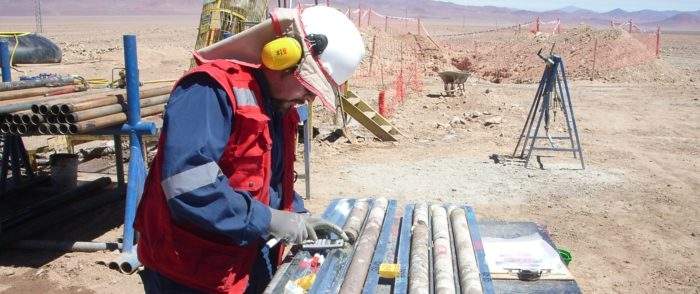
Derisk Geomining Consultants director and principal geologist Mark Berry recently gave a thought-provoking presentation titled ‘Will innovation make existing drilling, geological logging and sampling methods redundant?’ to the Australian Drilling Industry Association (ADIA) 2017 conference. This year’s conference theme was ‘Innovation to the Core’.
Mark noted that much research is focused on developing new drilling methods and new real-time and near real-time logging, sampling and analytical methods that can be drill-site or cloud-based. These innovations have the potential to deliver real step-change improvements across the exploration and mining industry if they deliver faster and cheaper services and products, and/or additional information.
However, the future choice of an appropriate drilling, logging, sampling and analytical method will still be determined by its end use. In mineral exploration and mining, geologists use drilling to create a conduit and/or to collect a sample, but the focus may differ, for example:
• The emphasis for much of the drilling undertaken at advanced exploration projects and operating mines is on collecting accurate and precise data that will be used for estimating mineral resources and ore reserves. Generally, this means that coring and reverse circulation (RC) drilling methods are often preferred
• Alternatively, at an early exploration stage this requirement, whilst important, may not be the key driver for choosing the most appropriate drilling method. One reason is that the drilling focus may be on looking for anomalous geochemical or mineralogical intervals, rather than determining accurate/precise measurements of mineral content. Accordingly, it may be desirable and cost-effective to use faster and cheaper drilling methods
During his presentation, Mark described some of the many current research and development initiatives across the drilling, logging, sampling and chemical analysis areas. He then provided an assessment of the appropriateness of these innovations for both early exploration applications, and for advanced exploration and mining.
Mark concluded “Innovation serving the early exploration focus, where sample integrity and quality is desirable but not necessarily essential, is further advanced than innovation that delivers quantitative, high-sample integrity and quality, or innovation that will deliver the need for less drilling. Consequently, diamond drilling and RC drilling for advanced exploration and mining applications will continue to be the method of choice for many geologists in the short to medium-term.”
